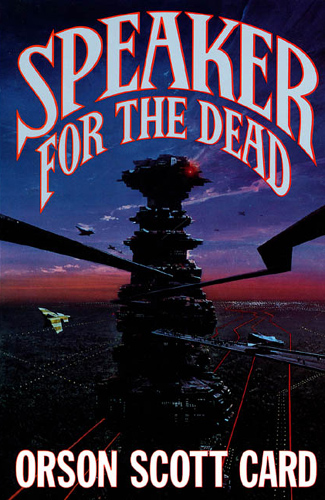So the Legend of Korra's got me super confused. Again.
There I was, four episodes into season 4, and Korra seems to be traipsing all over The Last Airbender's memory once again. This time my beef was with her ability to assume the Avatar State.
The Legend of Korra has been nothing if not confusing, and at many points contradictory. The Avatar State is a perfect example. In TLA (The Last Airbender), we learned that the Avatar State was the current avatar's ability to channel his (or her) past lives in a way that gave he (or she) access to all the wisdom and power of his (or her) predecessors. Confusing? A little. Vague? Yeah, but whatever. Cool? Duh.
In TLA, the audience was made to think of the Avatar as an element-bending Dalai Lama. Both bald, both spiritual leaders, both with a fondness for red and yellow robes. And both were perpetually reincarnating spirits tasked with guiding the free world. Right, got that. To get metaphysical for a minute, the concept of the Avatar in TLA was that the avatar spirit never died, and was reincarnated in each new avatar. Each avatar was basically the same person, but in a different body, and with their own experiences. Aang was Roku. Roku was Kyoshi. So on and so forth. Again, confusing, but people rarely need (or want) their spiritual beliefs over-analyzed. Reincarnation is a common and accepted thing in several eastern philosophies. We went with it. Cool. Past lives. One in the same. Still got it.
But if you do over-analyze it, the nature of the Avatar raises some seemingly contradictory existential dilemmas: How can avatars be themselves AND someone else? If they're the same person, how can they still speak to one another individually, like different people? Korra should be able to remember BEING Aang, and Aang should be able to remember BEING Roku. Speaking to one's past life like a grandchild to a wise, loving grandparent seems redundant; why not get those memories and experiences in First Person POV? Korra IS Aang, just like you ARE you and I AM me. Sure, you COULD speak to yourself, but not to tell yourself what you already know. It's more of a comfort thing, at least for me, but who's counting?
The Legend of Korra attempted to solve all those fishy existential mysteries with Raava, the giant silver and white immortal Light Spirit that lives inside each Avatar like a bad case of ring worm. For the first time, the Avatar State was concretely defined; it was given a mechanism. The Avatar State was not, in fact, the channeling of past lives, but the channeling of Raava, who herself is connected to all the Avatars, past and present. She was the hidden telephone by which Aang spoke with Roku, and by which Korra spoke with Aang. The Avatars AREN'T all the same person, with the Avatar spirit. Raava IS the Avatar spirit, and each new Avatar is a vessel she chooses, an individual with his (or her) own soul. You could say Raava is the real Avatar, the ONLY Avatar. The human Avatars are just the sharks that little Raava suckerfish uses to hitchhike around the ocean. The Avatar Spirit is the Avatar, but the Avatar isn't the Avatar Spirit. God, that's confusing.
So what does that mean for the Avatar State? As I've just said, it's the channeling of Raava, who, through her connections with past Avatar souls, can make the current Avatar much more bad ass. It's like Korra's body is a Gundam suit (a giant, brainless, fighting robot, for the layman), and, normally, Korra's soul is the pilot, but during bursts of Avatar state, Raava (a.k.a. the Avatar Spirit) takes control of the Gundam and goes ham sammich on whoever is in the way.
I didn't understand this right away (can you blame me?), and so Season 3 of the Legend of Korra, especially the finale, was frustrating. "How can she achieve the Avatar State?" my little nerd heart cried out. "Zahir's poison shouldn't work, because Korra's connection to her past lives was severed last season!"
Excellent point, My Little Nerd Heart. I now think I have the answer, thanks to some Avatar Wiki.
The Avatar Spirit IS Raava. Raava is immortal, but can be "killed." This happened in the Season 2 finale. Unalaq (Korra's uncle and Season 2's Big Baddy) and the Darkness Spirit, Vaato, dragged Raava out of Korra and destroyed her. But there can be no darkness without light. Yin and Yang. Good and Bad. Raava was reborn inside Vaato, Korra ripped her out, they recombined, happy ending. But this Raava was not the same old Raava.
Think of it like hitting the Reset button on... something that has a Reset button. The old Raava had all these experiences and connections with past Avatars because she was there, swimming around inside them like a parasite of Goodness, but when she was destroyed and reborn inside Vaato, all that stuff was lost. This version of Raava has had all the factory defaults restored. No more past lives; this new Raava didn't know any of the old Avatars, just Korra. Korra is essentially the second "First" Avatar.
The writers of the Legend of Korra aren't contradicting themselves by letting Korra still go Avatar State, but when Korra goes Avatar State from now, it really shouldn't make a difference. The old Raava had connections with all the old Avatars--that's what made her Avatar State powerful. This new version of Raava only has a connection with Korra. So the Avatar state is basically just Korra using Raava to connect with... herself. The Avatar State is no longer an advantage, and it never will be for Korra. Not until the next Avatar will it be useful, because then the new Avatar will be able to channel Korra's wisdom and power (what little of it there is) through new Raava.
I think.
Okay, rant over. Thomas out.







